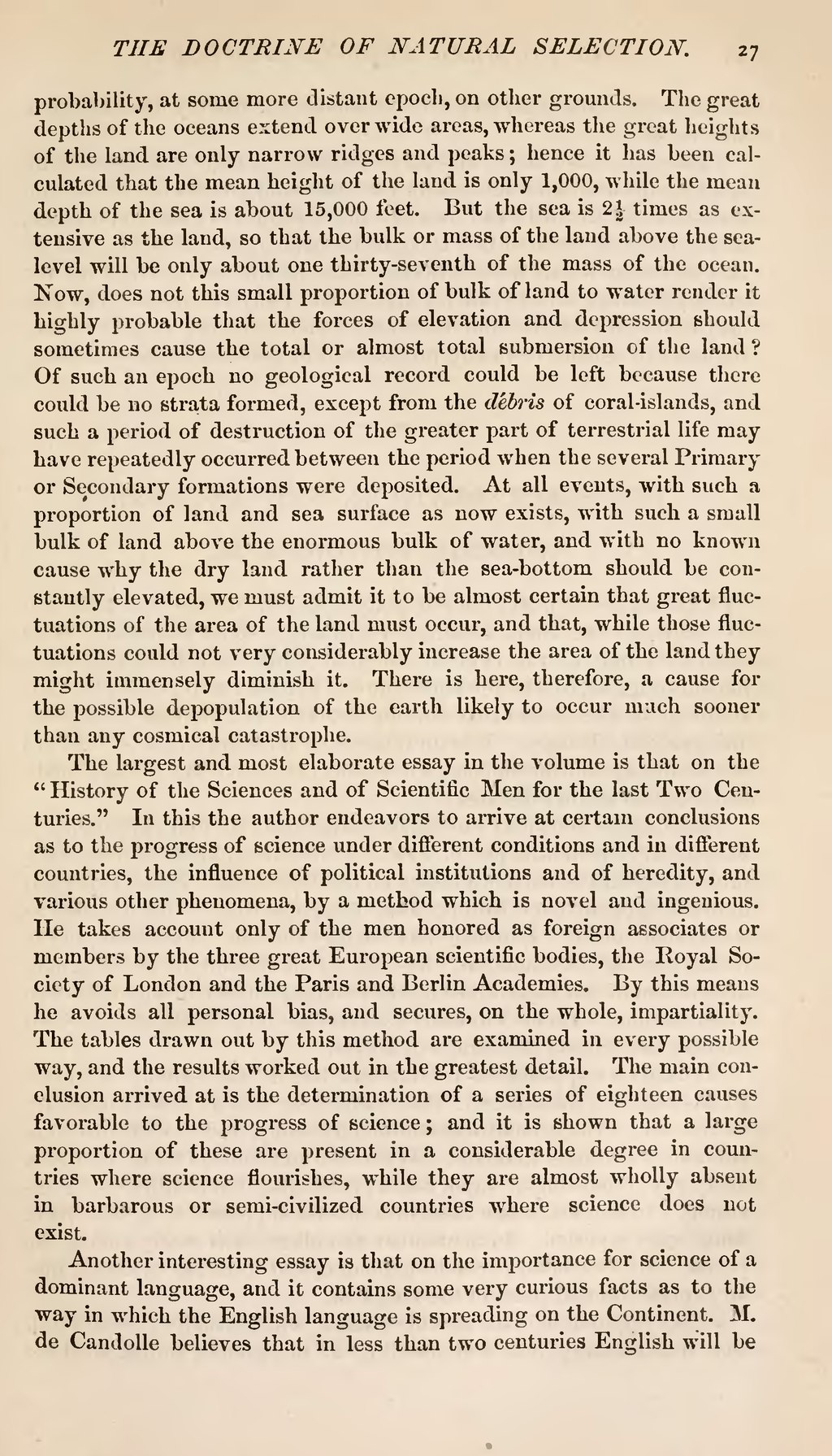probability, at some more distant epoch, on other grounds. The great depths of the oceans extend over wide areas, whereas the great heights of the land are only narrow ridges and peaks; hence it has been calculated that the mean height of the land is only 1,000, while the mean depth of the sea is about 15,000 feet. But the sea is 21⁄2 times as extensive as the land, so that the bulk or mass of the land above the sea-level will be only about one thirty-seventh of the mass of the ocean. Now, does not this small proportion of bulk of land to water render it highly probable that the forces of elevation and depression should sometimes cause the total or almost total submersion of the land? Of such an epoch no geological record could be left because there could be no strata formed, except from the débris of coral-islands, and such a period of destruction of the greater part of terrestrial life may have repeatedly occurred between the period when the several Primary or Secondary formations were deposited. At all events, with such a proportion of land and sea surface as now exists, with such a small bulk of land above the enormous bulk of water, and with no known cause why the dry land rather than the sea-bottom should be constantly elevated, we must admit it to be almost certain that great fluctuations of the area of the land must occur, and that, while those fluctuations could not very considerably increase the area of the land they might immensely diminish it. There is here, therefore, a cause for the possible depopulation of the earth likely to occur much sooner than any cosmical catastrophe.
The largest and most elaborate essay in the volume is that on the "History of the Sciences and of Scientific Men for the last Two Centuries." In this the author endeavors to arrive at certain conclusions as to the progress of science under different conditions and in different countries, the influence of political institutions and of heredity, and various other phenomena, by a method which is novel and ingenious. He takes account only of the men honored as foreign associates or members by the three great European scientific bodies, the Royal Society of London and the Paris and Berlin Academies. By this means he avoids all personal bias, and secures, on the whole, impartiality. The tables drawn out by this method are examined in every possible way, and the results worked out in the greatest detail. The main conclusion arrived at is the determination of a series of eighteen causes favorable to the progress of science; and it is shown that a large proportion of these are present in a considerable degree in countries where science flourishes, while they are almost wholly absent in barbarous or semi-civilized countries where science does not exist.
Another interesting essay is that on the importance for science of a dominant language, and it contains some very curious facts as to the way in which the English language is spreading on the Continent. M. de Candolle believes that in less than two centuries English will be

